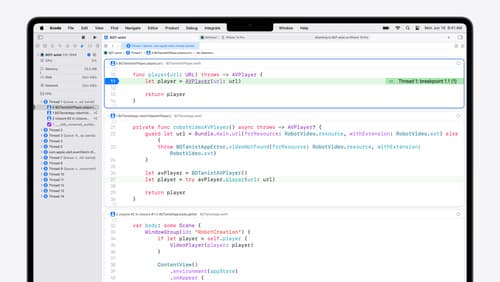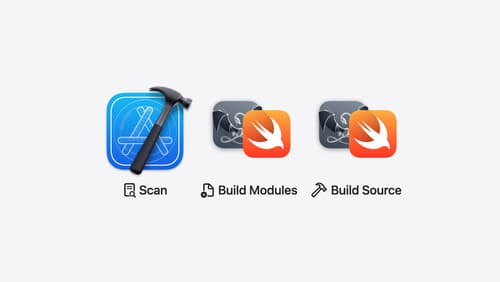Xcode 16: why debug app for simulator contains additional App.dylib executable?
Asked on 2024-09-26
1 search
In Xcode 16, the presence of an additional App.dylib executable when debugging an app for the simulator is related to improvements in the build and debugging process. Xcode 16 introduces explicit modules, which enhance parallelism, diagnostics, and debugging speed. These modules allow the debugger to reuse build outputs, leading to faster debugging sessions. The App.dylib might be part of these improvements, as it could be used to facilitate the debugging process by providing necessary symbols and modules in a more efficient manner.
For more details on these improvements, you can refer to the session What’s new in Xcode 16 (08:35) where the build process and debugging enhancements are discussed.

What’s new in Xcode 16
Discover the latest productivity and performance improvements in Xcode 16. Learn about enhancements to code completion, diagnostics, and Xcode Previews. Find out more about updates in builds and explore improvements in debugging and Instruments.

Demystify explicitly built modules
Explore how builds are changing in Xcode 16 with explicitly built modules. Discover how modules are used to build your code, how explicitly built modules improve transparency in compilation tasks, and how you can optimize your build by sharing modules across targets.

Platforms State of the Union
Discover the newest advancements on Apple platforms.
